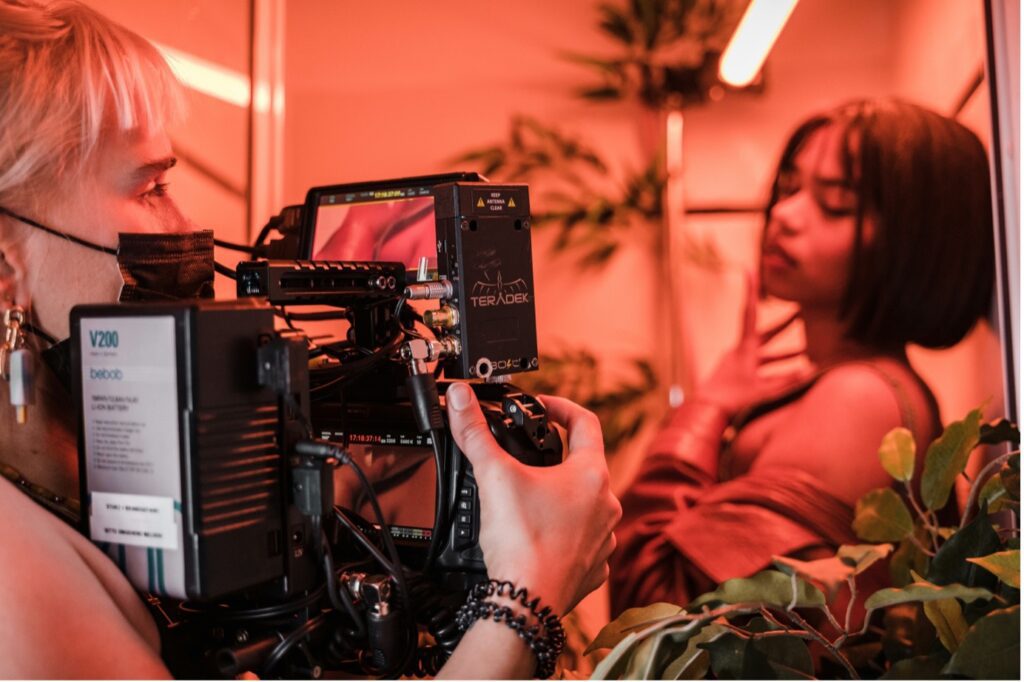In this week’s Our Take we check out a Lebanese food brand putting Mouneh on the table for women, Taxi company LYFT has made some vroom for safer driving, billboards in the UK are getting bolder for the right reasons and sadly, it’s still a man’s world in the film industry.
Invest in Women

This year International Women’s Day theme is ‘Invest in Women: Accelerate Progress’ which shines a light on women’s economic disempowerment.
In keeping with this year’s theme, Selfless Shelves is a campaign from Lebanese cheese brand Puck Arabia that is helping five independent cooks by sharing their shelf-space in major supermarkets, so they can bring their homemade delicacies, to a much larger market.
The food in question is Mouneh, a traditional homemade preserved food that has become an important source of income for many women in rural Lebanon. Puck Arabia has given five of them the resources to develop from talented cooks to successful entrepreneurs, benefitting the women and their communities.
This campaign emphasises how important it is to invest into women’s education, healthcare, economic empowerment, and leadership development in hopes of achieving further gender equality.
Check out the Selfless Shelves campaign here.
All Hail! A Safe Ride

American taxi company LYFT has rolled out a feature that protects the safety of female and non-binary passengers and drivers. The service, which is similar to UBER, allows people to offer lifts and rideshares to its users.
Noticing some vroom for improvement, LYFT partnered with Women + Connect to prioritise the safety of women and non-binary passengers by allowing them to choose female and non-binary drivers. It’s a win-win.
In a world where a lot of brands are shying away from ’woke’ messaging due to feared backlash, (who can forget Kid Rock blowing up a stack of Bud Light on stage after their campaign featured a transgender woman), LYFT are a driving force for inclusivity.
Since its initial release during a trial roll-out last September, the app has launched the feature nationwide in the US and has amassed 7 million users so far. So get your rear in gear, Irish taxi companies, and give us the safe journey we need!
It’s still a man’s (celluloid) world

Like an unkillable monster in a bad sequel, the number of speaking roles for women in the film industry actually declined in 2023. Again.
Dr. Martha Lauzen, director of the Centre for Study of Women in Television and Film at San Diego State University, published her annual report “It’s a Man’s (Celluloide) World”, analysing female representation in the 100 top-grossing films of the year. The report finds that the overall percentage of female characters declined from 37% in 2022 to a mere 35% in 2023, and that 77 of the top 100 movies had more male than female characters in speaking roles.
“But what about Barbie?” you ask. “Wasn’t the highest-grossing film of the year led by a female cast and crew”.
Well… as Dr. Lauzen states, Barbie was the exception not the rule. We’re still far from the historical peak achieved in 2019 of 40% of speaking roles for women. Unsurprisingly, it’s even bleaker for African American women, Latin women, and women over 60, with numbers in speaking roles even lower, but still declining.
Too bold to ban

Bold and daring campaigns grab attention, but when the message involves women’s bodies, it often seems to risk criticism or even outright bans. Fair? We don’t think so.
The UK’s Advertising Standards Authority (ASA) is gaining a reputation for quickly pulling ads that test the boundary between important and inappropriate. Earlier this year, they banned a Calvin Klein campaign featuring FKA Twigs in January, as they deemed the ad to depict a “stereotypical sexual object.” Yet a not dissimilar campaign featuring Jeremy Allen was given a free pass, despite causing plenty of controversy online.
The criticism against the FKA Twigs decision was so sharp, that the ASA quickly announced that they have partially reversed the decision, allowing the ad to be displayed but just not in places where it might be visible to children. However, they maintained that despite the fact that Twigs is covered, the ad remained “overtly sexual”. So it’s still an issue.
While these rulings are infuriating, it has caused brands who want to discuss women’s issues to create campaigns that ‘tackle’ the issues in less direct ways. Take how Lovehoney – no stranger to advertising complaints – use objects like flowers or a melting ice-cream cone to suggest body parts that they can’t show. It’s subtle, it’s clever and it makes you look twice.
It’s great to see how brave brands remain passionate about discussing topics that some might deem inappropriate. But we still can’t help ask why campaigns dealing with basic biology get so much stick in the 21st century.